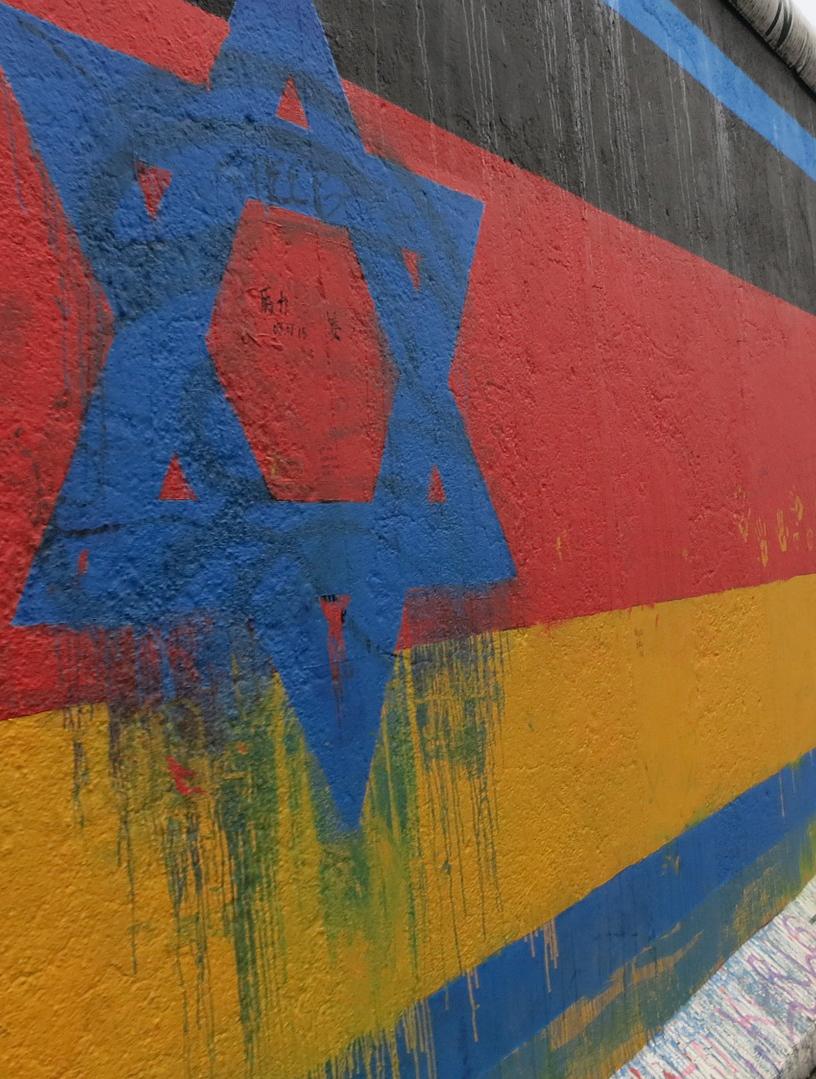
3 minute read
How to Design the Perfect New Year's Resolution
Rebecca Hertzman
Why do we make resolutions?
Advertisement
We are all fully aware of the ineffectiveness of the New Years resolution – so why do we make these promises that are destined for failure year after year? Maybe it’s because they provide us with the hope of self-improvement. Even if we struggle to follow through with our resolutions they do provide us with the motivation to better ourselves, and that’s never a bad thing. It has wisely been said that the biggest room in the world is the room for self-improvement.
The Vilna Gaon proposes that we must always be progressing from one level to another, because “if one does not ascend, he will inevitably fall.''
When should I make my resolution?
While New Years resolutions are firmly linked with the Gregorian New Year (January 1st), the tradition of making resolutions is not a foreign concept within Judaism, but we call it Cheshbon HaNefesh - Accounting of the Soul. In this practice we look back at the person we were in the year that has passed, and ask if we have lived up to Hashem’s expectations, as well as the expectations that we set for ourselves.
Rosh Hashanah may not mark the start of the secular year, but who says that resolutions have to be made at the beginning of the (secular) year? Constructing resolutions later on in the year, after you’ve started to stray from your ideals, is in fact the perfect time to re-evaluate and improve oneself.
So, how do we account our souls?
Step 1: Find an area in your life that’s lacking
Self-knowledge is a prerequisite for selfimprovement. Think of all the different aspects of your personality i.e. kindness, tolerance, arrogance, honesty, compassion, greed etc. Once you have a list that you feel accurately summarises all existing character traits, determine whether you have achieved a “profit” or a “loss” in each area over the past year.
Step 2: Make it specific
Take one of these areas in which you feel that you made a significant “loss” and ask yourself the following questions: Why did I go downhill in this characteristic? Is this having a negative impact on my life? How can I improve this aspect of myself?
When you feel that you have decided on the aspect that you want to work on, make sure that you have a fully formed understanding of what the deficiency is and exactly how you can improve it.
Step 3: Get your willpower going
It is well known that the biggest barrier to change is a lack of willpower. It’s easy to get side tracked, to want to take the ‘easy way out’ instead of pushing until the end. There’s no simple way to get around this. You just have to focus on the end goal and imagine how you’ll feel once you have reached it.
Rabbi Levenstein muses in Ohr Yechezkel that it’s easier to know the Talmud by heart than to uproot a single character trait. The journey to self- improvement is going to be a long and difficult one, but don’t forget that it’s all about the baby-steps. No one can change overnight, and whilst it is normal to want to make grand actions of holiness and kindness, it’s the smaller deeds that enable you to reach your final destination. It’s easy to become discouraged by a perceived lack of progress, but even the smallest improvements are still improvements.
Why refine our character when there is so much improvement needed in the world?
You can’t change the world until you’ve changed yourself.
We spend a lot of time focusing on all the problems in the world. Poverty in Africa, global warming, animal ethics, the list goes on and on. But people committed to improving society must be grounded in their personal morals and ethics.
How do you know if you’ve achieved your goal?
Resolutions don’t end after the year is up. Once you forget that this aspect is something you are actively working on and it just becomes a part of your being, you have reached your destination. But the work doesn’t end there; these are promises that you should work to uphold for the rest of your life.
Never stop trying to improve.
And this friends, is the resolution solution. Chag Sameach!









